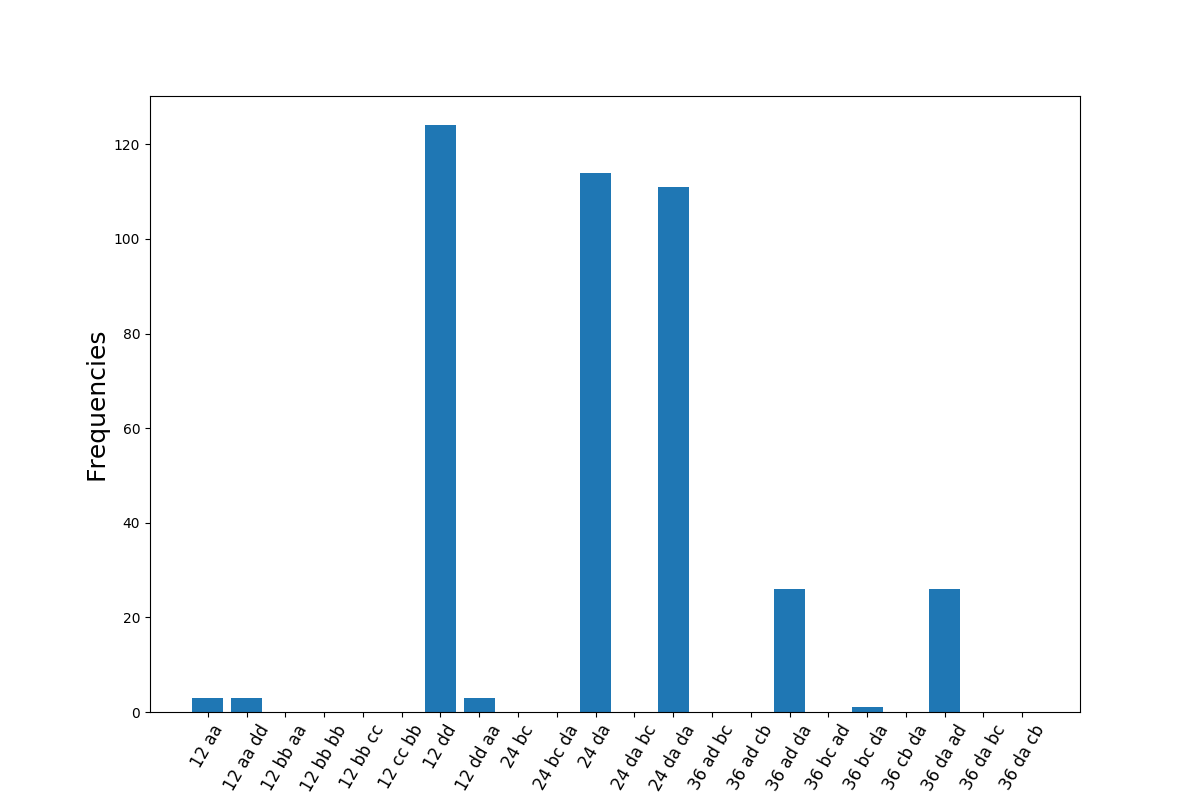Word ExtrAction for time SEries cLassification¶
This example shows how the WEASEL algorithm transforms a time series of real
numbers into a sequence of frequencies of words. It is implemented as
pyts.transformation.WEASEL.

import numpy as np
import matplotlib.pyplot as plt
from pyts.transformation import WEASEL
# Parameters
n_samples, n_features = 100, 144
n_classes = 2
# Toy dataset
rng = np.random.RandomState(41)
X = rng.randn(n_samples, n_features)
y = rng.randint(n_classes, size=n_samples)
# WEASEL transformation
weasel = WEASEL(n_coefs=2, window_sizes=[12, 24, 36], pvalue_threshold=0.2)
X_weasel = weasel.fit_transform(X, y).toarray()
# Visualize the transformation for the first time series
plt.figure(figsize=(12, 8))
plt.bar(np.arange(X_weasel[0].size), X_weasel[0])
plt.xticks(np.arange(X_weasel[0].size),
np.vectorize(weasel.vocabulary_.get)(np.arange(X_weasel[0].size)),
fontsize=12, rotation=60)
plt.xlabel("Words", fontsize=18)
plt.ylabel("Frequencies", fontsize=18)
plt.show()
Total running time of the script: ( 0 minutes 4.152 seconds)